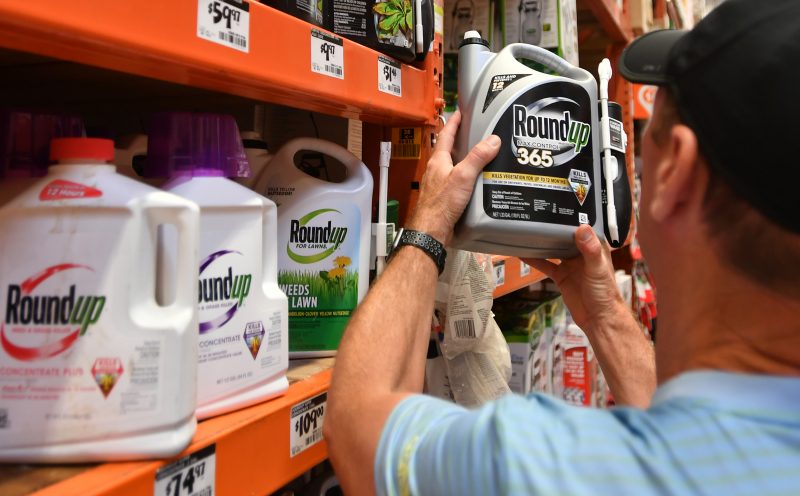Monsanto ordered to pay $2 bn in latest Roundup blow
Monsanto has suffered the latest in a series of court defeats for its glyphosate-based weedkiller Roundup, which the company insists is not linked to cancer (JOSH EDELSON)
San Francisco (AFP) – In a third major legal blow to Bayer-owned Monsanto and its weedkiller Roundup, a jury in California has ordered the chemicals giant to pay more than $2 billion in damages to a couple that sued on grounds the product caused their cancer, lawyers said.
The ruling on Monday was the latest in a series of court defeats for Monsanto over the glyphosate-based product, but the company insists the weedkiller is not linked to cancer.
The couple’s legal team described the damages award as “historic,” saying it totalled $2.055 billion (1.8 billion euros) after adding in slightly more than $55 million in compensatory damages.
“The jury saw for themselves internal company documents demonstrating that, from day one, Monsanto has never had any interest in finding out whether Roundup is safe,” said plaintiff’s counsel Brent Wisner.
“Instead of investing in sound science, they invested millions in attacking science that threatened their business agenda.”
The setback sent Bayer’s shares tumbling 2.55 percent to 55 euros in Frankfurt in mid-morning trading on Tuesday.
The German chemicals giant has seen close to 45 percent of its market capitalisation evaporate since it bought Monsanto in June 2018 for $63 billion.
In a statement, Bayer said it was disappointed with the jury’s decision and would appeal the verdict, which it argues was at odds with a recent US Environmental Protection Agency review of glyphosate-based weedkillers.
“The consensus among leading health regulators worldwide is that glyphosate-based products can be used safely and that glyphosate is not carcinogenic,” Bayer said.
– Bayer apologises –
Glyphosate developer Monsanto was convicted in the United States in 2018 and 2019 of not taking necessary steps to warn of the potential risks of Roundup — their weedkiller containing the chemical, which two California juries found caused cancer in two users.
Bayer announced last month that more than 13,000 lawsuits related to the weedkiller had been launched in the US.
Monday’s stunning verdict came as Bayer admitted that its subsidiary Monsanto kept lists of high-profile people — for or against pesticides — in France and likely other European countries.
Bayer apologised on Sunday after it emerged that Monsanto had a PR agency collate lists of French politicians, scientists and journalists, with their views on pesticides and GM crops.
French authorities have opened a preliminary inquiry into the claims.
“It is clear that we apologise for what has come to light in France,” Matthias Berninger, Bayer’s head of public affairs, told journalists in a conference call.
But he admitted that “it’s very likely that such lists also exist in other European countries.”
“We consider what we have seen so far to be completely inappropriate,” he said.
“We were of the opinion that the reports of these dealings with journalists, politicians and activists are not in order and not in agreement with what Bayer stands for.”
– Hidden costs –
The German agro-chemicals and drugs giant finalised its massive acquisition of Monsanto last year, but the blockbuster purchase has turned out to be plagued with other massive costs.
Just two months after the acquisition was completed, Monsanto lost a case to a school groundskeeper suffering from terminal non-Hodgkin’s lymphoma. He had sued the company over the glyphosate weedkillers Roundup and Ranger Pro.
Monsanto was initially ordered to pay $289 million to the groundskeeper, before the damages were reduced to $78.5 million.
In March, the company lost another case to an American retiree who blames his cancer on the weedkiller, and was ordered by a court to pay $80 million to the plaintiff.
Bayer is appealing both cases.
Disclaimer: Validity of the above story is for 7 Days from original date of publishing. Source: AFP.


